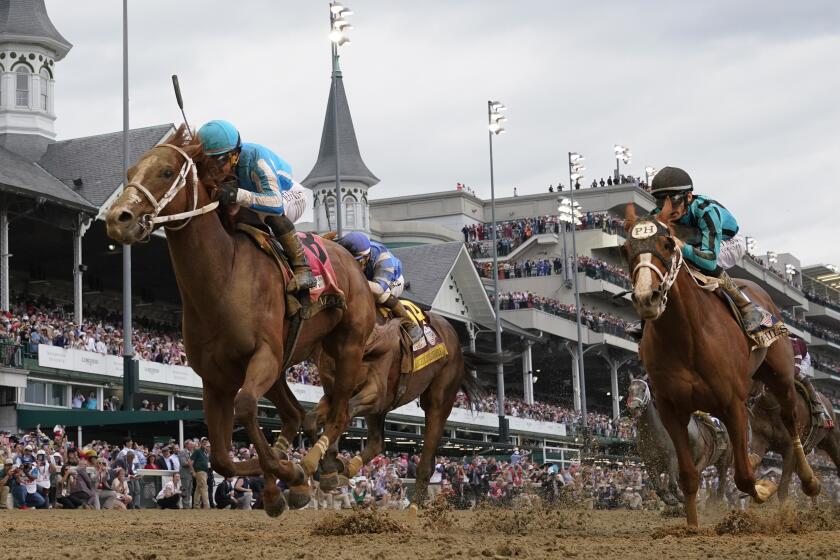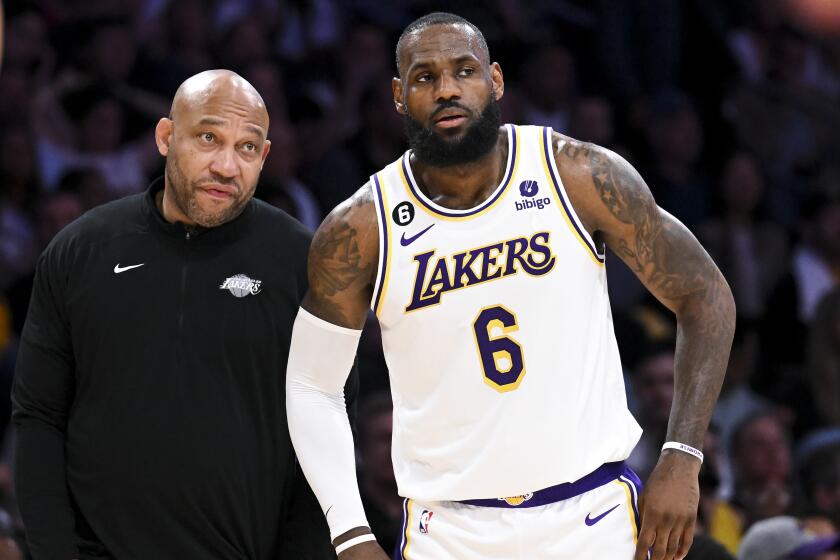Players’ Union Sets Sept. 16 Strike Date
The Major League Baseball Players Assn., pessimistic about the state of labor talks and bracing for another protracted battle with owners, has tentatively targeted Sept. 16 to begin the sport’s ninth work stoppage unless progress is made quickly in negotiations, baseball sources said Sunday.
The executive board of the union did not set a strike date during an All-Star break meeting in Rosemont, Ill., but union officials, concerned that owners may try to implement new work rules after the World Series, apparently plan to instruct players to walk out with two weeks remaining in the regular season. Don Fehr, executive director of the union, has laid out the group’s agenda during his ongoing tour to meet with all 30 clubs. Attempts to contact Fehr on Sunday were unsuccessful.
Although there had been widespread speculation of an August strike date, sources said financial and public-relations issues prompted the union’s choice of Sept. 16.
Players, paid biweekly, would miss only their final regular-season paycheck while hitting owners hard, wiping out the final two weeks of attendance and potentially big crowds for teams in playoff contention.
Baseball was credited with helping the United States heal after the terrorist attacks of Sept. 11, and players are leery of shutting down the game before that date because of the probable public backlash. Walking out Sept. 16 would enable the union to avoid an even bigger public-relations nightmare, and the season could be extended a week, as it was after last year’s traumatic events, if an agreement could be reached shortly after a strike had begun.
The union is expected to take the next step to increase heat on owners, trying to spur lagging talks centered on increased revenue sharing among the clubs and a luxury tax on teams with high payrolls. Although core economic issues are finally on the table and the sides have agreed on the concept of one worldwide draft, the union is frustrated the process has not moved faster.
Negotiations have been especially slow on the major financial issues. The high-revenue clubs transferred $167 million to the lower-revenue clubs last year, and the owners are now seeking to transfer about $298 million from the high-revenue teams. The union is at $228 million.
The sides differ on the method of distribution, but an agreement on numbers might lead to an agreement on method, so a compromise would seem possible on that front.
There is also the issue of the owners’ desire for a luxury tax on high payrolls, which the union strongly opposes.
More to Read
Get our high school sports newsletter
Prep Rally is devoted to the SoCal high school sports experience, bringing you scores, stories and a behind-the-scenes look at what makes prep sports so popular.
You may occasionally receive promotional content from the Los Angeles Times.






